At school, home or on social media, you may have heard people talking about Gaza and have wondered, what is happening?
Right now, families are living through a war. Homes, schools and entire neighbourhoods have been damaged or destroyed, and children have been forced to leave everything behind as they flee the violence, often multiple times. For children, this means not only losing the chance to learn and play, but also losing a safe place to sleep at night.
This explainer helps makes sense of what life is like for children in Gaza.
The Gaza Strip is a small area of land in the Middle East, between Israel, the Mediterranean Sea and Egypt. The Gaza Strip is part of the State of Palestine.
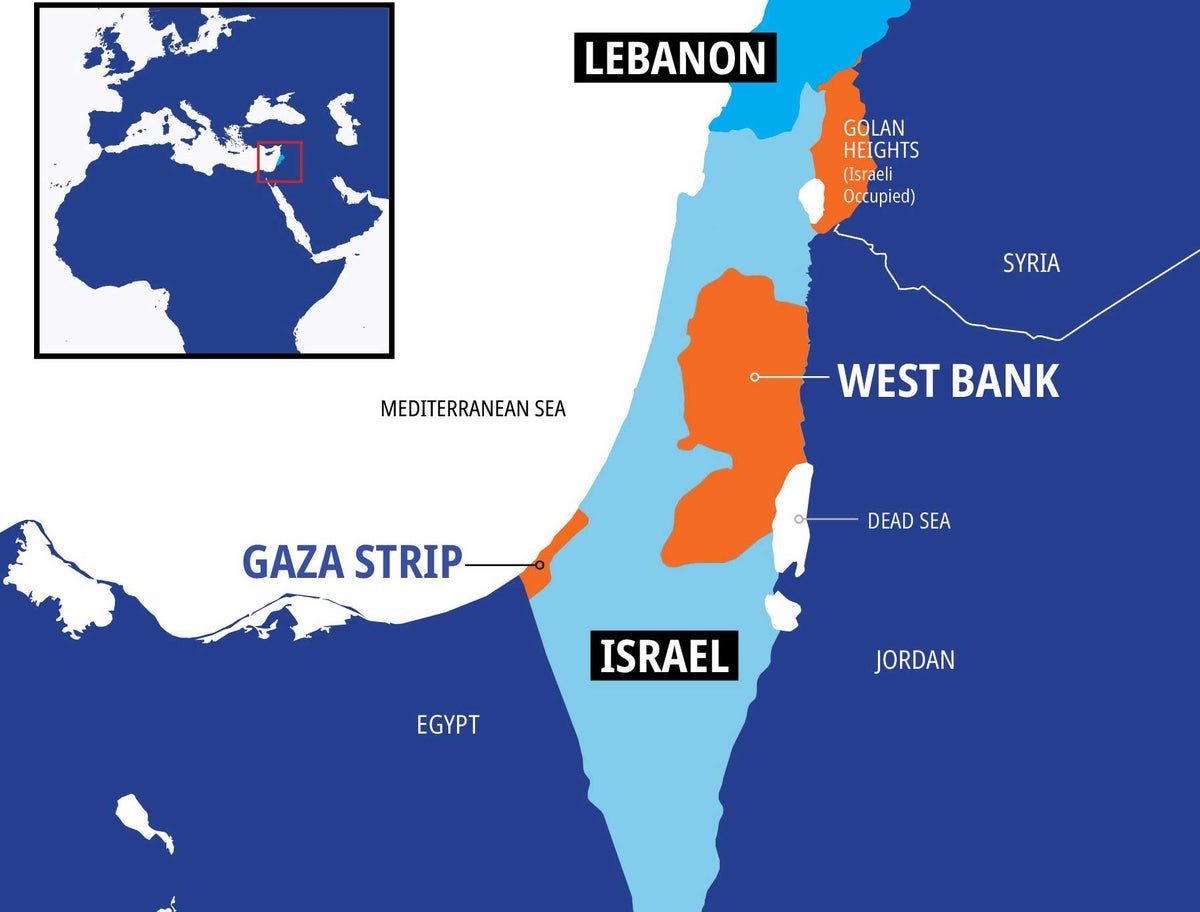
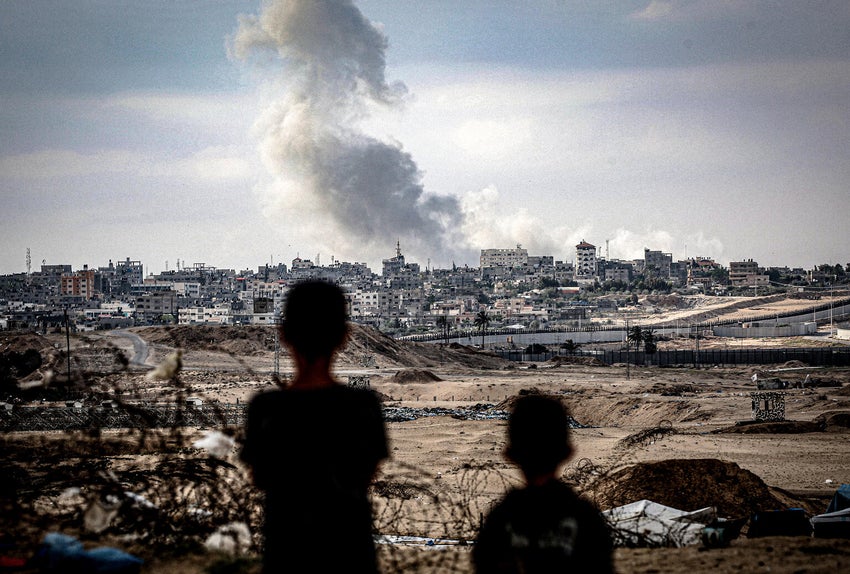
What is the Gaza Strip?
The Gaza Strip is a piece of land in the Middle East that sits between Israel and the Mediterranean Sea. It’s called a “strip” because it’s long and narrow – about 40-kilometres which is roughly the size of a large Australian suburb – and home to over 2.3 million people, about half of them children.

How many people, especially children, have been killed or hurt?
Sadly, tens of thousands of people have been killed or injured, and many of them are children. It’s really hard to give an exact number because the situation keeps changing every day, but it does show just how dangerous and unfair the war is on children. Every child has the right to be safe, and that’s why organisations like UNICEF are working hard to protect them and are calling for an end to the fighting so that no more children are hurt or killed.
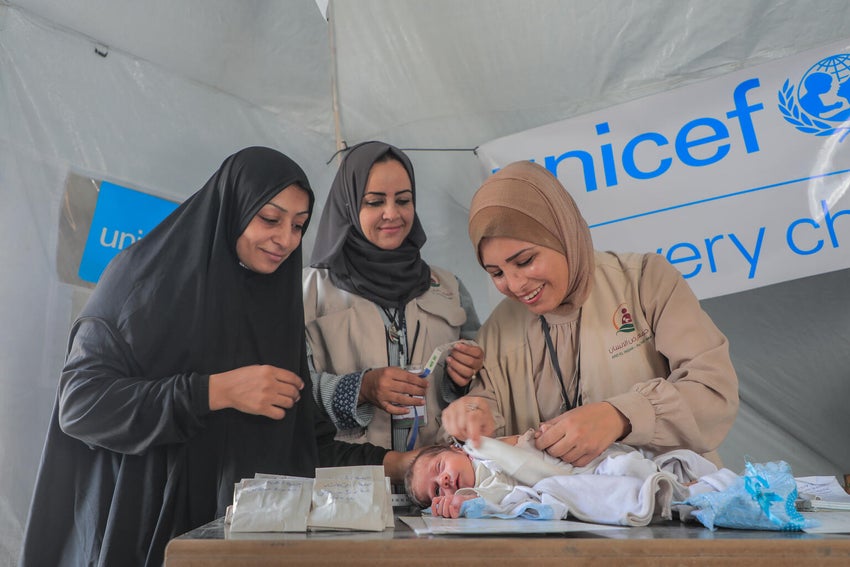
Can children see a doctor when they’re sick or hurt?
Accessing medical help in Gaza is very difficult. Many hospitals and health clinics have been damaged, and those that are still open often don’t have enough medicine, equipment, or even electricity to help. Doctors and nurses are working non-stop, often with very little sleep, and there are not enough hospital beds and supplies for everyone who needs one. Humanitarian organisations like UNICEF deliver lifesaving medicine, support hospitals and health clinics, vaccinate children against preventable diseases, and screen children for malnutrition, yet this is still not nearly enough.
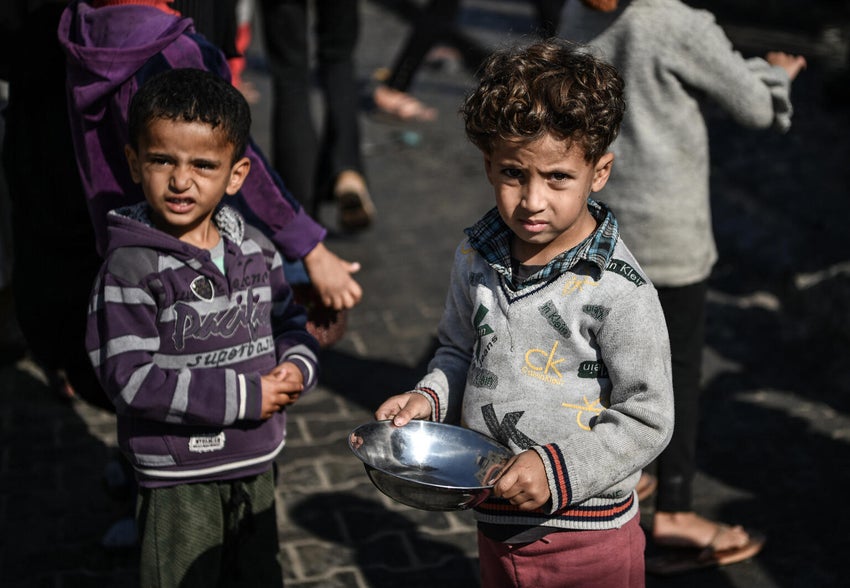
Are children in Gaza going hungry?
Yes. Many children in Gaza are hungry, and some are even starving, which is heartbreaking.
More and more children are becoming dangerously malnourished. This means their bodies aren’t getting the nutrients they need to grow, stay healthy, or even survive. Sadly, many children have already died because of this.
Only a small amount of basic supplies is being allowed into Gaza, so there isn’t enough food for everyone. Families are doing everything they can, but many simply can’t find enough to feed their children.
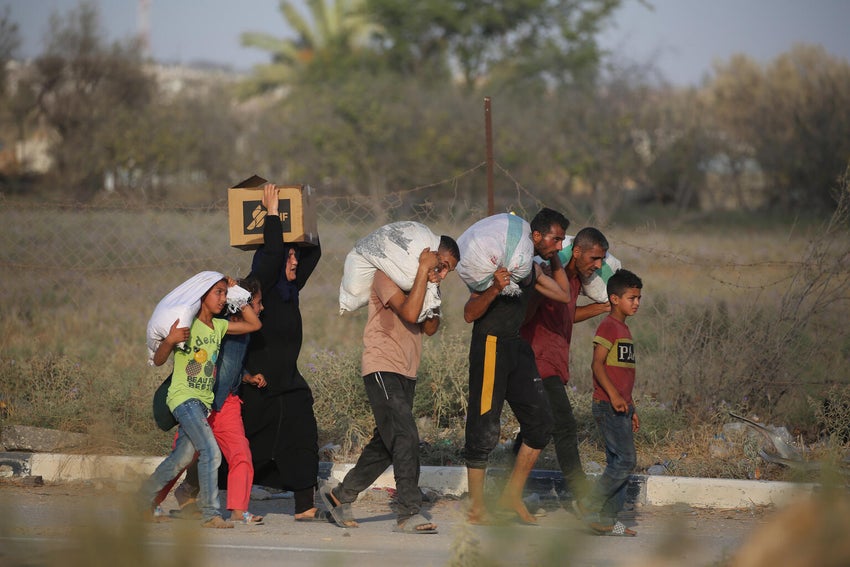
Why is it hard for families to find food in Gaza?
Only a small amount of aid is being allowed into Gaza, and there isn’t enough for everyone. The food and supplies that do come in aren’t being shared fairly; some people get a little, while many others get nothing.
At the same time, local markets offer very little. Shelves are nearly empty and the few items available are sold at prices so high that most families cannot afford them.
Earlier in 2025, there were over 400 places across Gaza where families could collect humanitarian aid, like food and other essential items. Now, there are only four, mostly in the south of Gaza, and they’re not managed by experienced international aid organisations. UNICEF continues to deliver lifesaving supplies whenever access is possible, but the system is under immense strain.
This change has made things much worse. Families now must walk long distances or sleep in the street. When they arrive, it is often chaotic and unsafe, and sadly, many parents and children have been killed or injured, simply trying to get food.
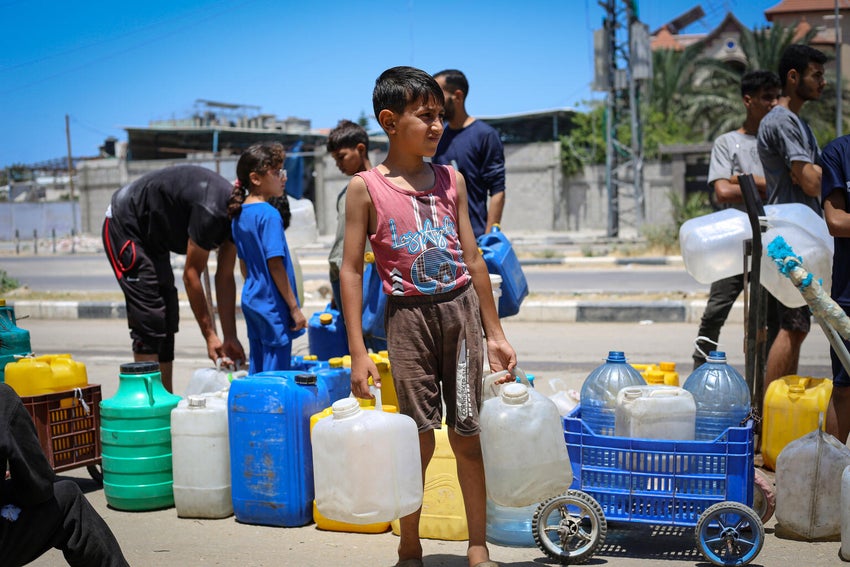
How are children accessing safe water?
Children in Gaza are struggling to find clean water. Pipes have been damaged, and constant electricity outages make it hard to keep water systems running. Many children now live in temporary shelters without running water, making even basic tasks like cooking, washing and staying clean a daily challenge. UNICEF is continuing to bring in emergency water supplies, including water trucks, bottled water and water purification tablets as well as repairing water systems where possible. But clean water is still scarce and not something families can count on every day.
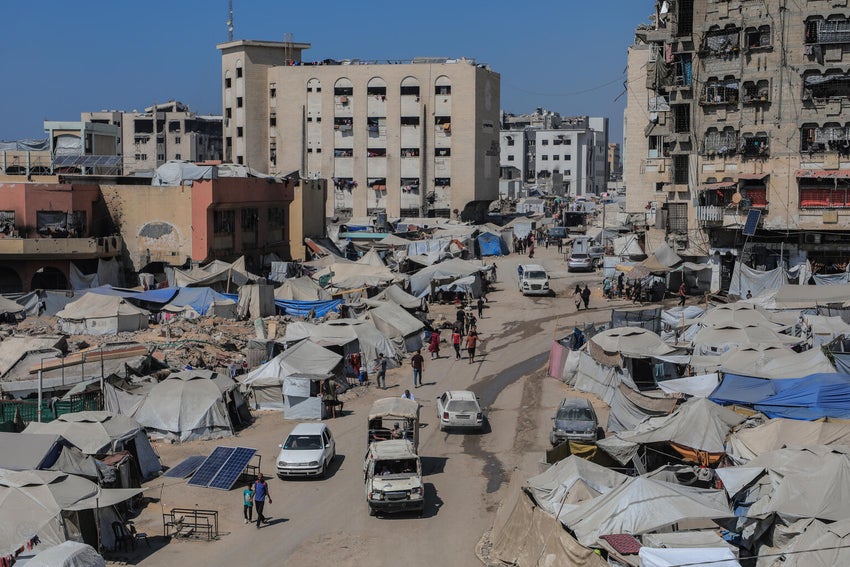
How do families find a safe space to sleep?
Finding a safe place to sleep in Gaza is really hard. Many families have lost their homes and must crowd into schools, hospitals, or other buildings being used as shelters. When those places are full, families set up tents wherever they can find room; on empty plots of land, the side of the street, along the beach or next to destroyed buildings. Most of these tents are pieced together by whatever materials they can find, such as tarpaulins, plastic sheets, wood, blankets and rugs. They provide some cover but offer little protection from the weather and give little privacy or comfort. Wherever possible, UNICEF is providing high-performing tents to families to shelter in.

Is it safe to play outside?
No. It isn’t safe to play outside. Parks, playgrounds and schools – places that should be fun and safe for every child – have been destroyed. Children have lost their toys, and instead of playing games like football and tag, or laughing with friends, they stay close to their families, helping to find food and clean water. Every child has the right to play, that is why UNICEF has created safe spaces in Gaza so children can learn, play, and just be kids.
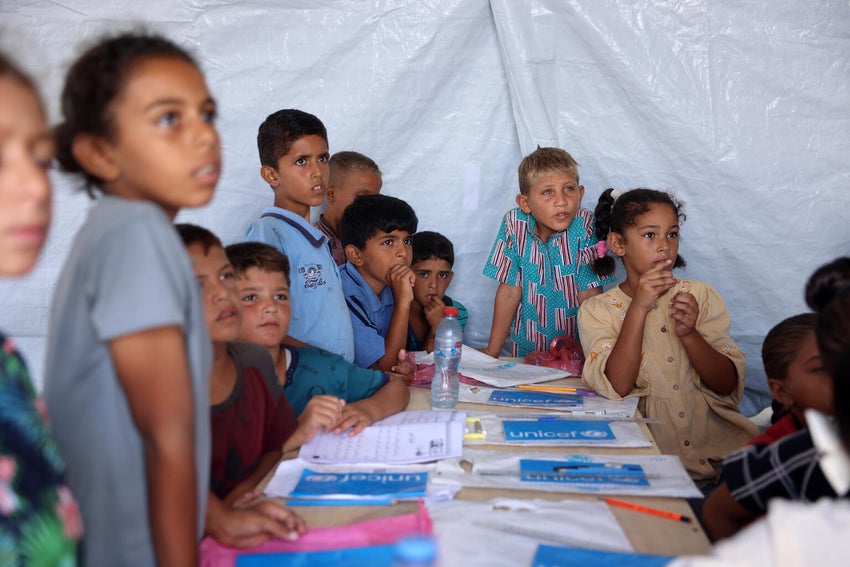
Are children in Gaza going to school?
Nearly every school has been damaged or destroyed. What is left of some schools have been turned into shelter for families who have lost their homes, and many children carry clothes in their school bags instead of books. More than 660,000 school-aged children currently have no access to learning, which means they are missing out on important lessons. UNICEF has set up temporary learning spaces, providing education and mental health support, but the war has made it impossible for children to attend regular school.
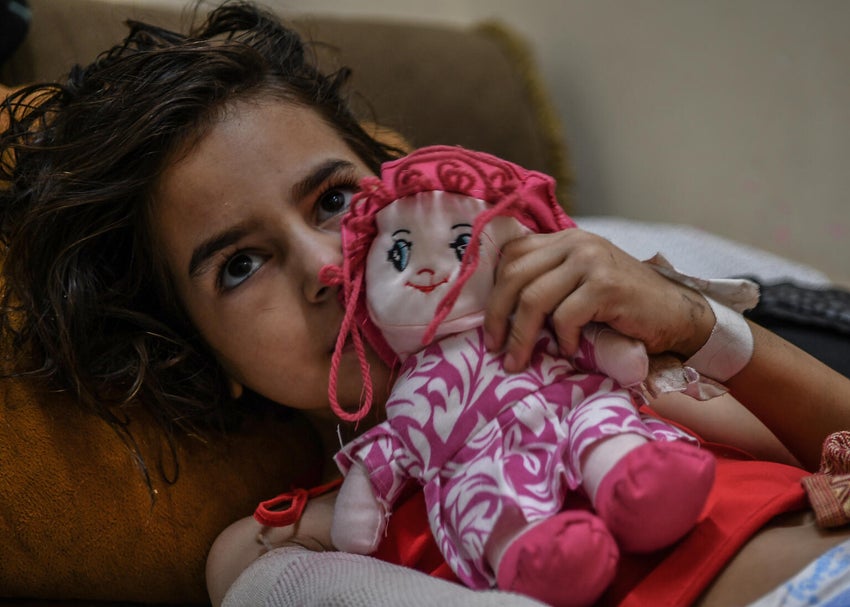
What is the world doing to help all the people caught up in the conflict?
People from all around the world, including leaders of other countries, are trying to help find peace, but it’s very hard because of the long history of fighting and all the hurt that has been caused.
Despite the challenging situation, UNICEF and our partners are on the ground providing lifesaving support to children and their families., while also calling for an immediate ceasefire and end to the war so that all children can grow up healthy and safe from harm.

How humanitarian aid works
Humanitarian organisations like UNICEF bring in lifesaving supplies, such as clean drinking water, lifesaving nutrition, and medicine. They also set up safe spaces where children can play, learn, and access healthcare and mental health support. On top of that, they repair damaged water systems, set up temporary toilets, provide soap for handwashing, and support healthcare services, plus so much more!
But getting aid into Gaza is incredibly difficult. The area is crowded, many roads are destroyed, and only a small amount of aid is allowed in each day. This means there’s never enough for everyone, so families often wait in long lines or sometimes miss out completely. Humanitarian aid can’t solve everything, but right now, for many families in Gaza, it’s their only lifeline.
Learn how humanitarian aid works during conflict and what makes delivering critical supplies like water, medicine and shelter to the Gaza Strip so challenging.
5 things you need to know about the Gaza-Israel crisis.
Fact 1
Gaza is one of the most densely populated areas in the world, with 2.3 million people – half of them children.
Fact 2
97 per cent of schools have been damaged or destroyed.
Fact 3
Ten of thousands of children have been killed or injured in the past two years.
Fact 4
Every child in Gaza needs mental health support.
Fact 5
UNICEF and its partners are on the ground providing medical supplies, lifesaving nutrition, tents, blankets, hygiene kits, bottled water, fuel and mental health support.
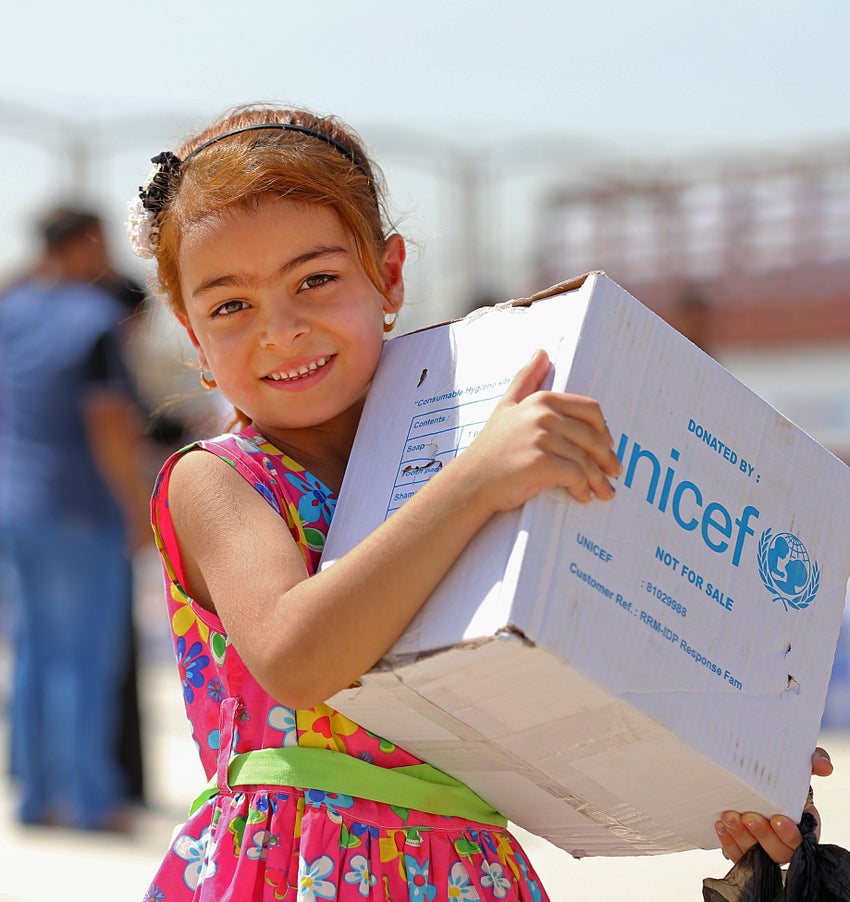
What can you do to help?
School fundraisers to fitness challenges and bake sales, there are so many ways you can fundraise for UNICEF Australia. Every donation, no matter the size, plays an important role in creating a world where every child is healthy, educated and safe from harm.
Gather your family, friends and school and fundraise for the children of Gaza.
How to deal with upsetting news
When natural disaster strikes or conflict breaks out, it is ok to feel scared, worried or sad. Adults can feel this way too. When you are feeling this way, it is important to remember:
It’s in the news because it doesn’t happen often.
- When bad things happen, it is also a time when people come together to help each other.
- If you’re feeling overwhelmed, it is ok to switch off and stop reading.
- Share how you feel and ask your parents and teachers questions.
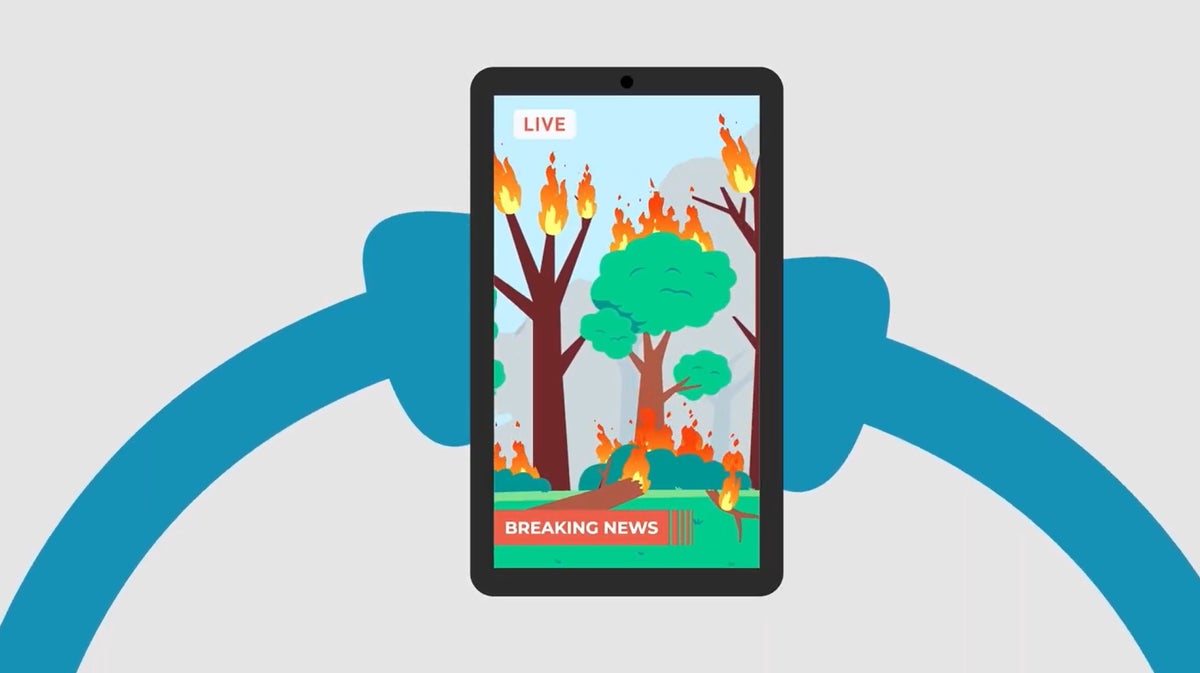
When it all feels too much, it's ok to switch off



